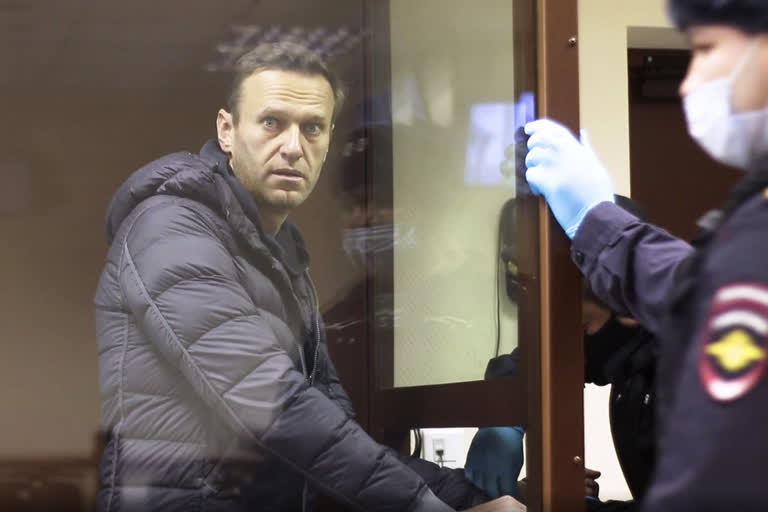Moscow: Russia said on Friday it was expelling diplomats from Sweden, Poland and Germany, accusing them of attending a rally in support of opposition leader Alexei Navalny, as international tensions grew over the jailing of the Kremlin’s most prominent foe.
The announcement came as the European Union’s foreign affairs chief Josep Borrell told Russian Foreign Minister Sergey Lavrov that the treatment of Navalny represents “a low point” in relations between Brussels and Moscow.
The diplomats were declared “persona non grata” and were required to leave Russia “shortly,” a ministry statement said.
European officials strongly denounced the move.
Germany said its diplomat was fulfilling his duty by following the developments, and it warned Moscow that its action won’t go unanswered, summoning the Russian ambassador.
“We consider this expulsion unjustified and think it is another facet of the things that can be seen in Russia at the moment that are pretty far from the rule of law,” German Chancellor Angela Merkel said in Berlin after a videoconference with French President Emmanuel Macron. Macron expressed solidarity with Germany, Poland and Sweden and condemned “in the stronger terms” the expulsions and what happened to Navalny “from the beginning to the end.”
Sweden said it “considers this entirely unjustified, which we have also conveyed to the Russian side,” Foreign Ministry spokesman Mats Samuelsson said in a statement to The Associated Press. Stockholm “strongly rejects Russian claims that the diplomat took part in a demonstration in Russia” and “reserves the right to take appropriate measures in response,” he said.
Read:|Russia slams 'aggressive' US request to free Navalny
Poland also warned Moscow the move will further worsen relations.
U.S. Secretary of State Antony Blinken condemned the expulsion, tweeting: “This arbitrary and unjustified act is Russia’s latest departure from its international obligations.” British Foreign Secretary Dominic Raab also said on Twitter that expelling diplomats “for simply doing their jobs is a crude attempt to distract from Russia’s targeting of opposition leaders, protesters and journalists.”
Speaking at the start of his talks with Lavrov, Borrell said: “our relations are under a severe strain, and the Navalny case is a low point in our relations.”
Afterwards, Borell said he had relayed his concerns over Navalny’s jailing and the arrests of thousands of who had rallied on his behalf. The EU official said he also communicated the bloc’s support for Navalny’s release and for an investigation of the August poisoning but added that there were no proposals of additional sanctions against Russia from the EU at this point.
Merkel said that “we reserve the right to continue the sanctions” but noted the Navalny situation shouldn’t affect the Nord Stream 2 pipeline under construction to deliver more Russian natural gas to Germany.
Lavrov again accused European officials of refusing to share evidence of the poisoning. The Kremlin has said it won’t listen to Western criticism of Navalny’s sentencing and police action against his supporters.
Navalny, 44, an anti-corruption investigator and Russian President Vladimir Putin’s most prominent critic, was arrested Jan. 17 upon returning from Germany, where he spent five months recovering from a nerve-agent poisoning that he blames on the Kremlin. Russian authorities have rejected the accusation.
On Tuesday, a Moscow court ruled that while in Germany, Navalny violated probation terms of his suspended sentence from a 2014 money-laundering conviction and ordered him to serve two years and eight months in prison. The ruling prompted international outrage.
